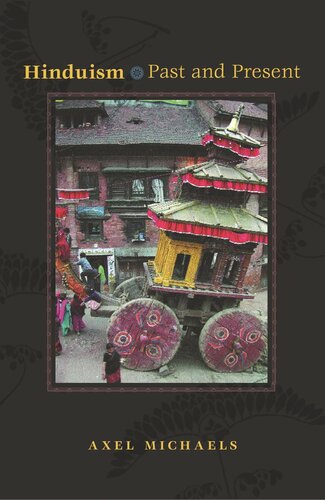

Most ebook files are in PDF format, so you can easily read them using various software such as Foxit Reader or directly on the Google Chrome browser.
Some ebook files are released by publishers in other formats such as .awz, .mobi, .epub, .fb2, etc. You may need to install specific software to read these formats on mobile/PC, such as Calibre.
Please read the tutorial at this link: https://ebookbell.com/faq
We offer FREE conversion to the popular formats you request; however, this may take some time. Therefore, right after payment, please email us, and we will try to provide the service as quickly as possible.
For some exceptional file formats or broken links (if any), please refrain from opening any disputes. Instead, email us first, and we will try to assist within a maximum of 6 hours.
EbookBell Team

4.7
26 reviewsHinduism is currently followed by one-fifth of humankind. Far from a monolithic theistic tradition, the religion comprises thousands of gods, a complex caste system, and hundreds of languages and dialects. Such internal plurality inspires vastly ranging rites and practices amongst Hinduism's hundreds of millions of adherents. It is therefore not surprising that scholars have been hesitant to define universal Hindu beliefs and practices. In this book, Axel Michaels breaks this trend. He examines the traditions, beliefs, and rituals Hindus hold in common through the lens of what he deems its "identificatory habitus," a cohesive force that binds Hindu religions together and fortifies them against foreign influences. Thus, in his analysis, Michaels not only locates Hinduism's profoundly differentiating qualities, but also provides the framework for an analysis of its social and religious coherence.
Michaels blends his insightful arguments and probing questions with introductions to major historical epochs, ample textual sources as well as detailed analyses of major life-cycle rituals, the caste system, forms of spiritualism, devotionalism, ritualism, and heroism. Along the way he points out that Hinduism has endured and repeatedly resisted the missionary zeal and universalist claims of Christians, Muslims, and Buddhists. He also contrasts traditional Hinduism with the religions of the West, "where the self is preferred to the not-self, and where freedom in the world is more important than liberation from the world."
Engaging and accessible, this book will appeal to laypersons and scholars alike as the most comprehensive introduction to Hinduism yet published. Not only is Hinduism refreshingly new in its methodological approach, but it also presents a broad range of meticulous scholarship in a clear, readable style, integrating Indology, religious studies, philosophy, anthropological theory and fieldwork, and sweeping analyses of Hindu texts.